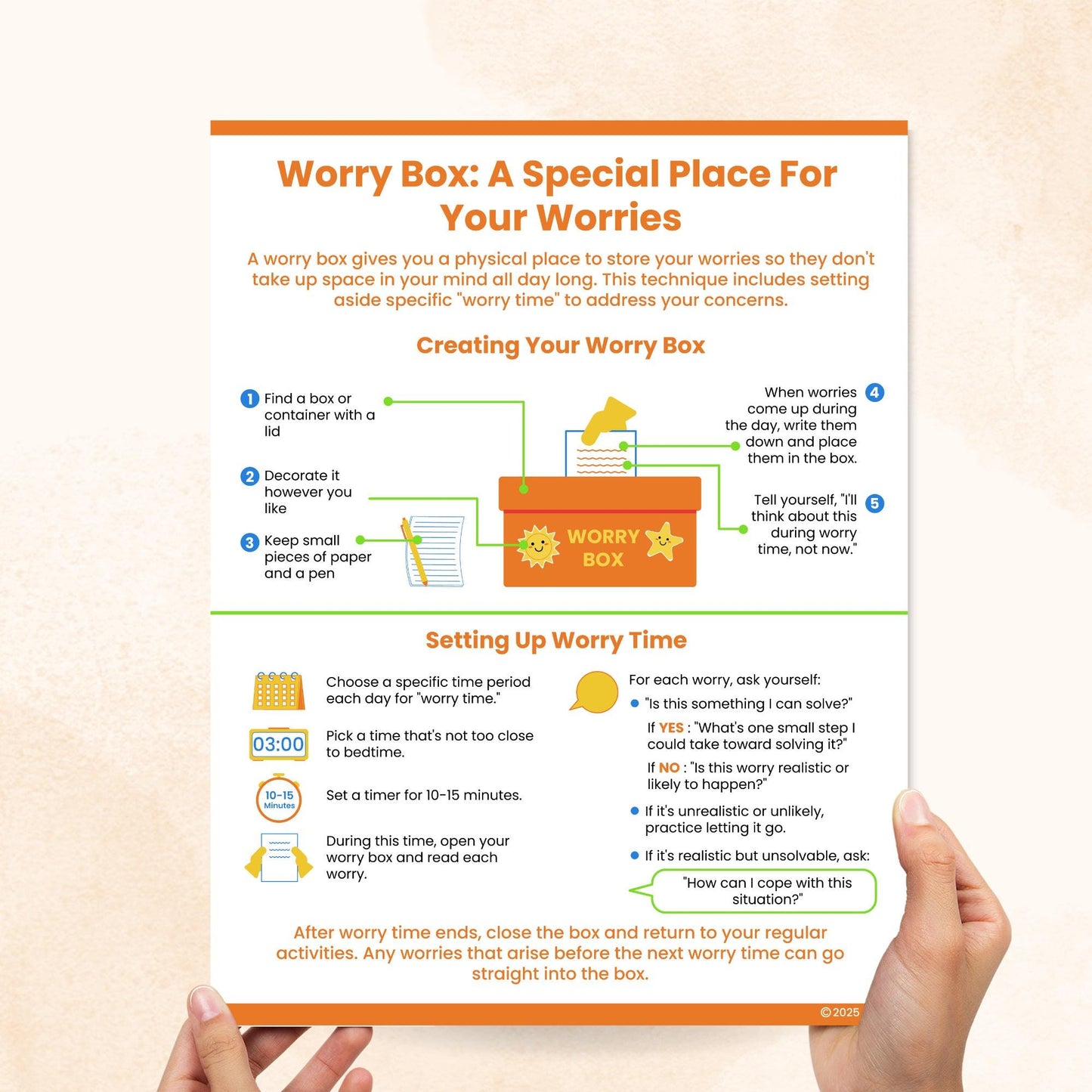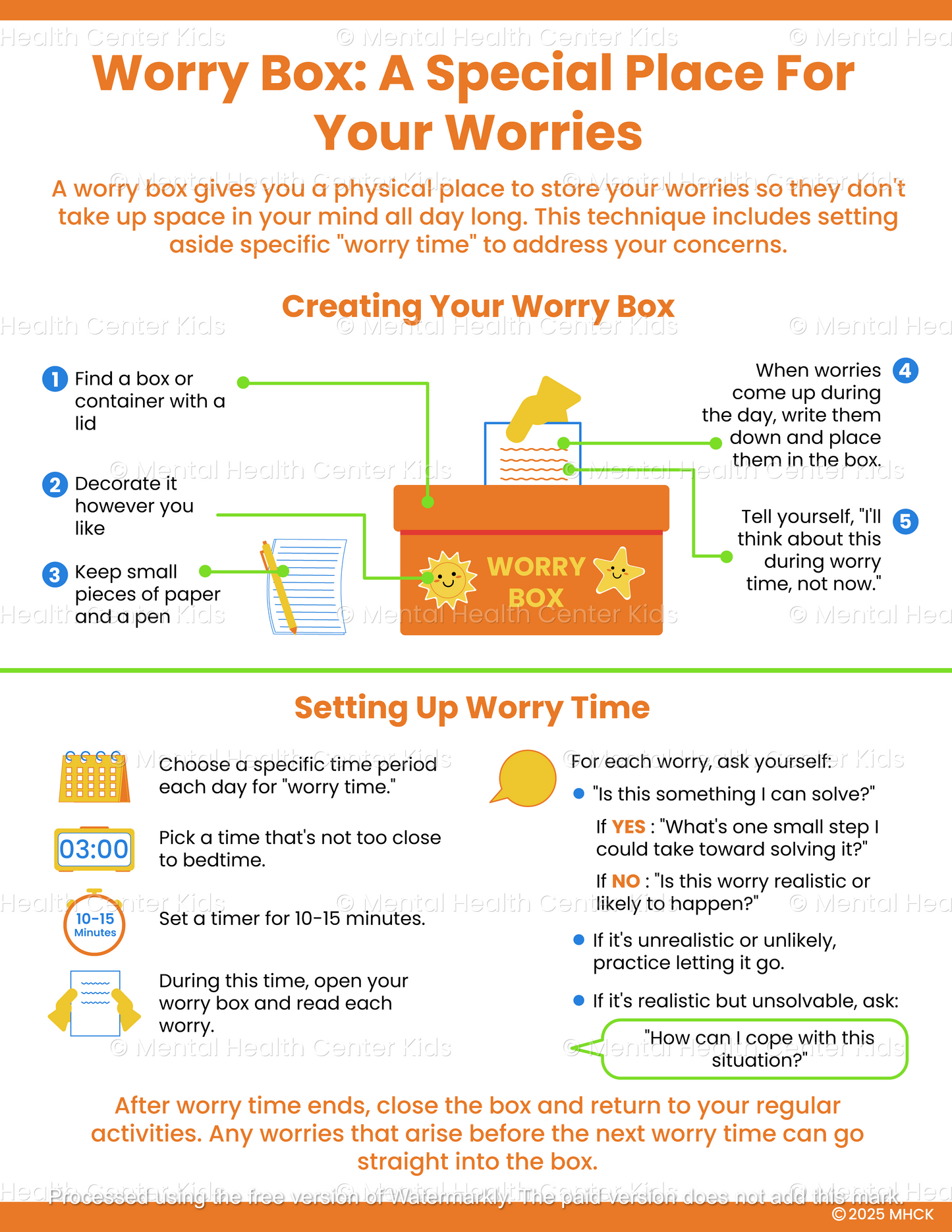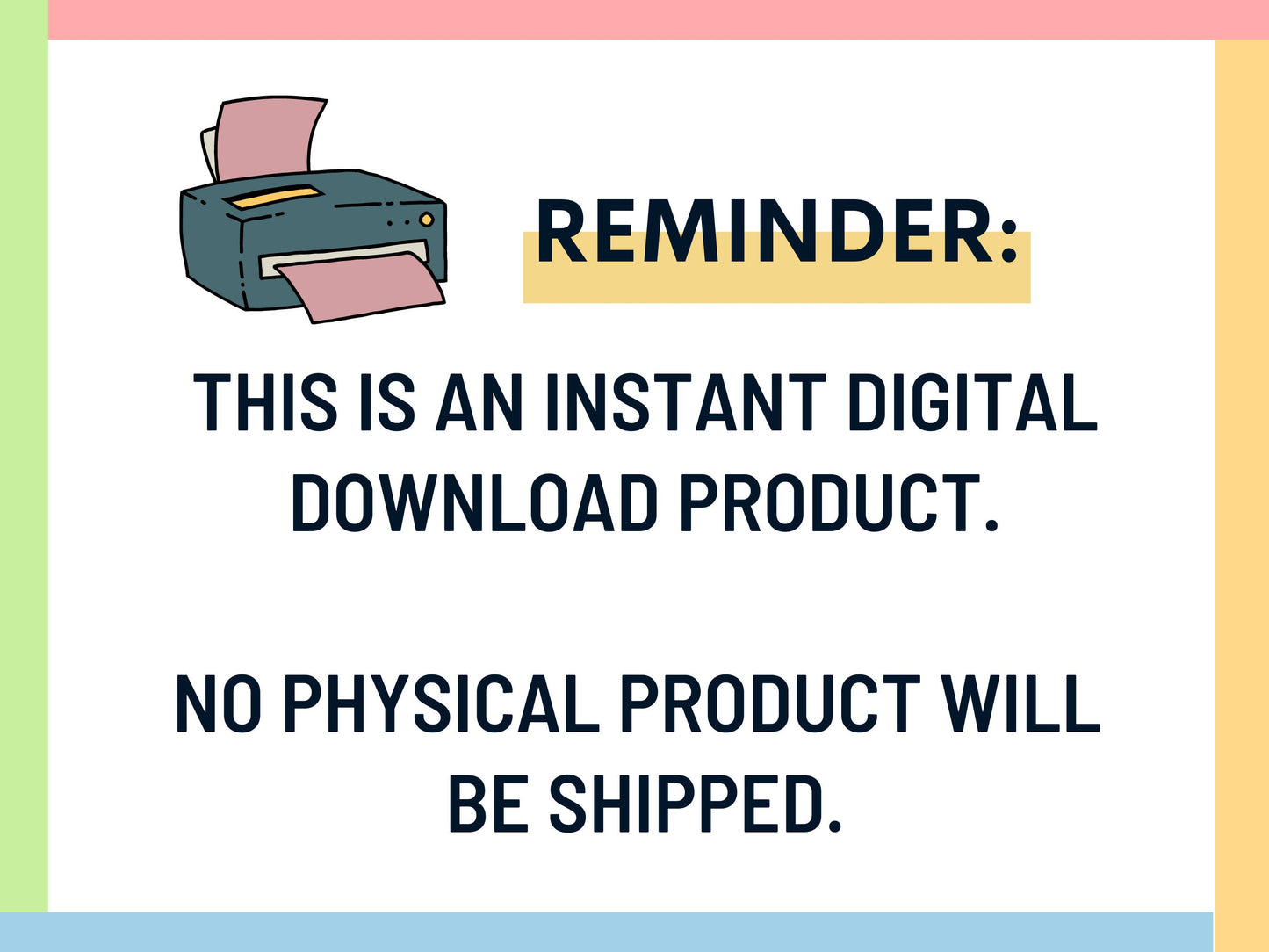


Clients can worry about many things — school, friendships, family changes, or even things they don’t fully understand. When these worries build up without a way to process them, they may lead to anxiety or feeling overwhelmed. A “worry box” is a simple tool that gives clients a safe place to “put away” their worries for a while by writing them down and dropping them into the box.
The Worry Box Handout teaches clients how to create their own worry box as a way to manage anxious thoughts in a structured way. The handout also includes helpful tips for setting up a “worry time,” such as choosing a quiet time of day, setting a timer, and asking reflective questions like, “Is this something I can solve?”
Writing down a worry and placing it in the box gives the brain a break. To encourage children to use the worry box daily, parents or teachers can build it into their routine, such as after school or prior to bedtime.
After their worry time, we recommend instructing them to choose a calming activity, like deep breathing or reading. Check out our worry jar worksheet, which incorporates a similar concept.
*This item is an instant digital download. A link to download your files will be emailed to you once payment is confirmed.
Want more resources like this? Check out our full catalog of coping skills worksheets and handouts.
References:
- World Health Organization: WHO. (2023, September 27). Anxiety disorders. https://www.who.int/news-room/fact-sheets/detail/anxiety-disorders
- Newman, M. G., Jacobson, N. C., Zainal, N. H., Shin, K. E., Szkodny, L. E., & Sliwinski, M. J. (2019). The Effects of Worry in Daily Life: An Ecological Momentary Assessment Study Supporting the Tenets of the Contrast Avoidance Model. Clinical Psychological Science : A Journal of the Association for Psychological Science, 7(4), 794. https://doi.org/10.1177/2167702619827019
- Toussaint, L., Nguyen, Q. A., Roettger, C., Dixon, K., Offenbächer, M., Kohls, N., Hirsch, J., & Sirois, F. (2021). Effectiveness of Progressive Muscle Relaxation, Deep Breathing, and Guided Imagery in Promoting Psychological and Physiological States of Relaxation. Evidence-Based Complementary and Alternative Medicine : ECAM, 2021, 5924040. https://doi.org/10.1155/2021/5924040
- Instant digital download
- File: PDF
- Size: 8.5" x 11"




